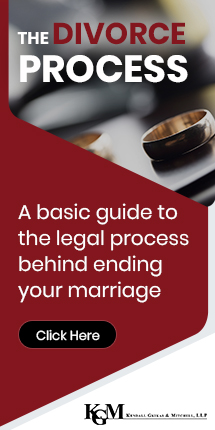
If you’re in the over 50 crowd and are planning to get divorced, then there are a few things you should know. Read on to learn about them and then reach out to Kendall Gkikas & Mitchell at 909-482-1422 to schedule a legal consultation.
- California is a community property state
- It’s likely that alimony will be granted
- You may have to return to work
- If you want the house then you’re going to have to give up something else
- Your children may still be affected
Throughout the country, there are different ways of dividing property and assets during a divorce. In California, the method that’s used is called the community property model. Essentially, it means that both spouses are entitled to half of any property or assets that were acquired during the divorce. It makes no difference whose name is on the title or who earned it – both parties are entitled to half of all assets.
If you were married for more than ten years, the courts consider it a long-term marriage. As a result, it’s likely that the judge will assign spousal support and that they won’t include an end date. That said, it’s not a given. The judge will take into consideration a number of factors, including the wages of both spouses and their property. Ensuring spousal support is fair is one of the reasons to reach out to Kendall Gkikas & Mitchell sooner rather than later.
Remember that because California is a community property state, all assets are cut in half – including retirement. If you and your spouse have saved up a nest egg, only half of it will be yours. If this is enough for you to stay retired on, then great – but if it’s not then you may be looking at a return to the workforce.
Ideally, you and your spouse would agree on who the house is going to go to. If that’s the case, then the value of the house will be considered part of the assets that the person getting it receives. What does that mean for you? It means that if you want the house, then you’re going to have to give up something else. To be more specific, take the value of your home and cut it in half. The number you’re left with is how much value you’ll owe your spouse.
Even though you won’t have to deal with being a single parent, child support, and child visitation schedules, understand that your children may still have strong feelings about your divorce.
If you’ve been considering a divorce and are ready to find out what your options really are then we urge you to call Kendall Gkikas & Mitchell at 909-482-1422 right away. We are here to help make this process as simple as possible.


